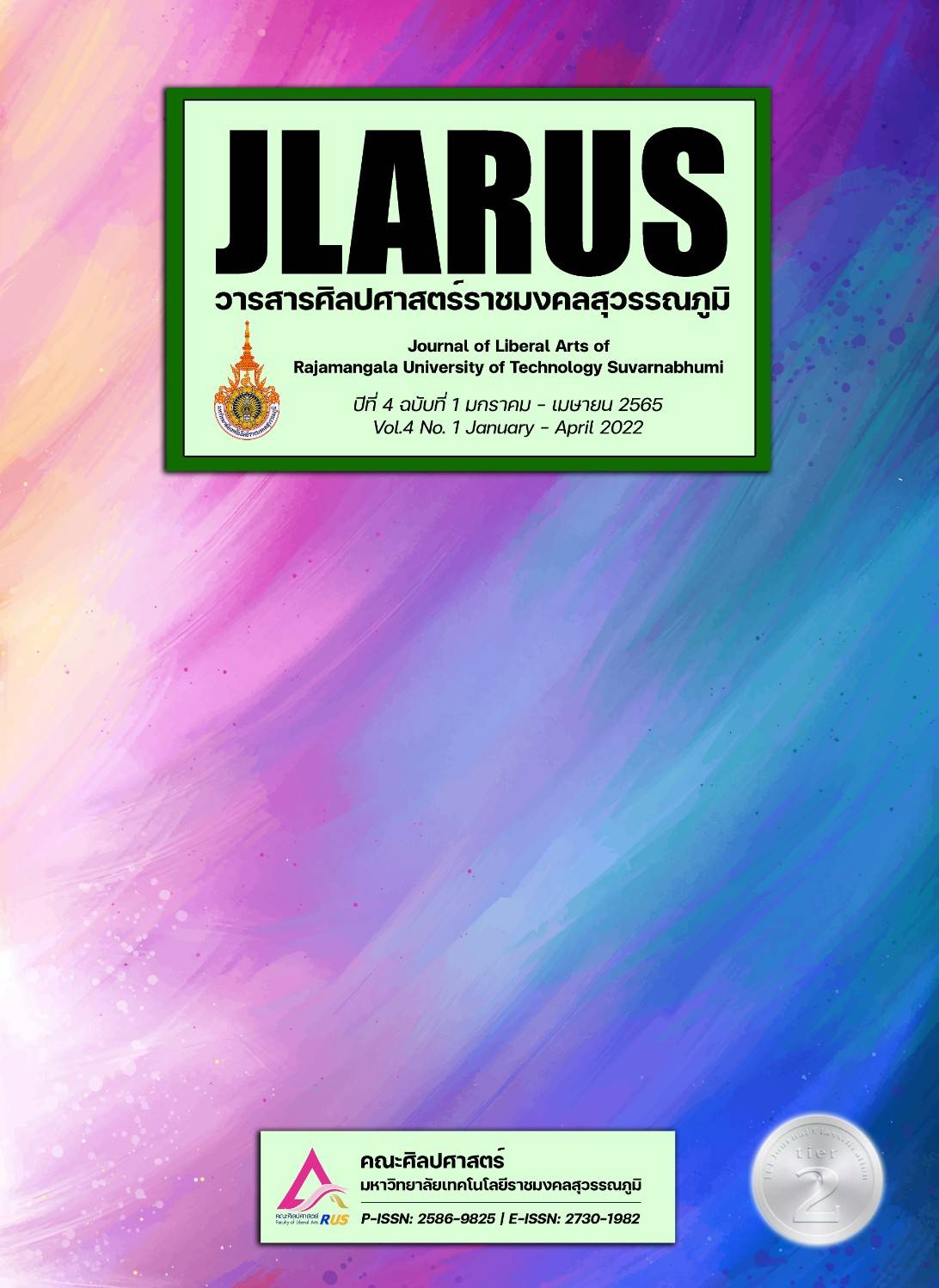THE EXPECTATION TOWARDS WOMEN: FROMTHE DIDACTIC LITERATURE FOR WOMEN TO THE PLAY “PERFECT WIFE”
Main Article Content
Abstract
This academic article aimed to examine and compare the women expectations which appear in 3 didactic literatures for women as fallows 1) Krisana Son nongKhamchan written in Krungthonburi period 2) Phu didactic literature for women written in early Rattanakosin period and 3) didactic literature for women written in the reign of King RamaVI with the Perfect Wife drama composed in 2020. It was found that even the time had changed but the social’s expectations towards being the perfect women still revealed continually that such expectations were inherited as the ideal feminine tradition. The ideal women are the female who had the perfect properties consisted of physical appearance, manners, being the domestic goddess. Those expectations had been changed as the recently social state which means the perfect women are the female who have the appropriate education and the occupation as their potential and concentration. It is possible to conclude that the graceful appearance and manners have to compose of education and competence so the education is one of the significant factors in the social’s expectations towards the women especially in the Perfect Wife. The word “perfect” in the drama refers to “professional” which means having knowledge, competence and proficiency as the character “Dao” who is the main character in the drama with the absolute qualifications which consist of the elegance, intelligence, domestic ability, education and her occupation result in the character “Dao” is the perfect wife as the perfect woman in the social’s expectations appropriately.
Article Details

This work is licensed under a Creative Commons Attribution-NonCommercial-NoDerivatives 4.0 International License.
References
กรมวิชาการ. (2545). ภาษิตและคำสอนภาคใต้เล่ม 1. กรุงเทพมหานคร: สถาบันภาษาไทย กรมวิชาการ กระทรวงศึกษาธิการ.
ขุนบวรรัตนารักษ์. (2489). กฤษณาสอนน้องคำฉันท์ ฉะบับกรุงธนบุรี. พิมพ์ในงานฌาปนกิจศพ นางอิ่ม ตัญญพงศ์ มารดา. ม.ป.ท.
เทพ สุนทรศารทูล. (2536). สุภาษิตสอนหญิงของนายภู่ จุลละภมร. กรุงเทพมหานคร: พระนารายณ์.
นิยะดา เหล่าสุนทร. (2542). ไตรภูมิพระร่วงการศึกษาที่มา. กรุงเทพมหานคร: โอเดียนสโตร์.
สุกัญญา สุจฉายา. (2525). เพลงปฏิพากย์: บทเพลงแห่งปฏิภาณของชาวบ้านไทย. กรุงเทพมหานคร: สำนักงานคณะกรรมการวัฒนธรรมแห่งชาติ.
ศิริรัตน์ ทวีทรัพย์. (2555). ประชุมสุภาษิตสอนหญิง. กรุงเทพมหานคร: บางกอกพิมพ์.
อวิรุทธ์ ศิริโสภณา และประภัสสร จันทร์สถิตย์พร. (2561). การประกอบสร้างความหมายของผู้หญิงที่ถ่ายทอดผ่านตัวละครหญิงในละครโทรทัศน์ไทยยอดนิยมที่ถูกผลิตซ้ำ ระหว่างปี พ.ศ. 2530–2560. วารสารนิเทศศาสตร์และนวัตกรรม นิด้า, 5(1), 23–40.
อาจารียา. (2532). สุภาษิตสอนหญิง. กรุงเทพมหานคร: อำนวยสาส์น.
ch3plus. (2563). ละครเมียอาชีพ. สืบค้น 21 กรกฎาคม 2564. จาก https://www.ch3plus.com/drama/953/.


